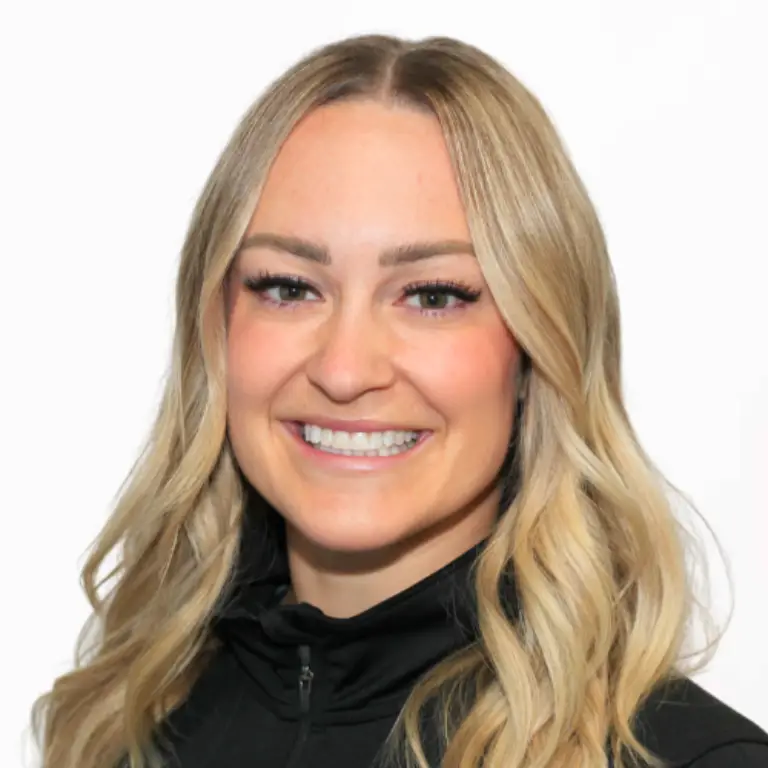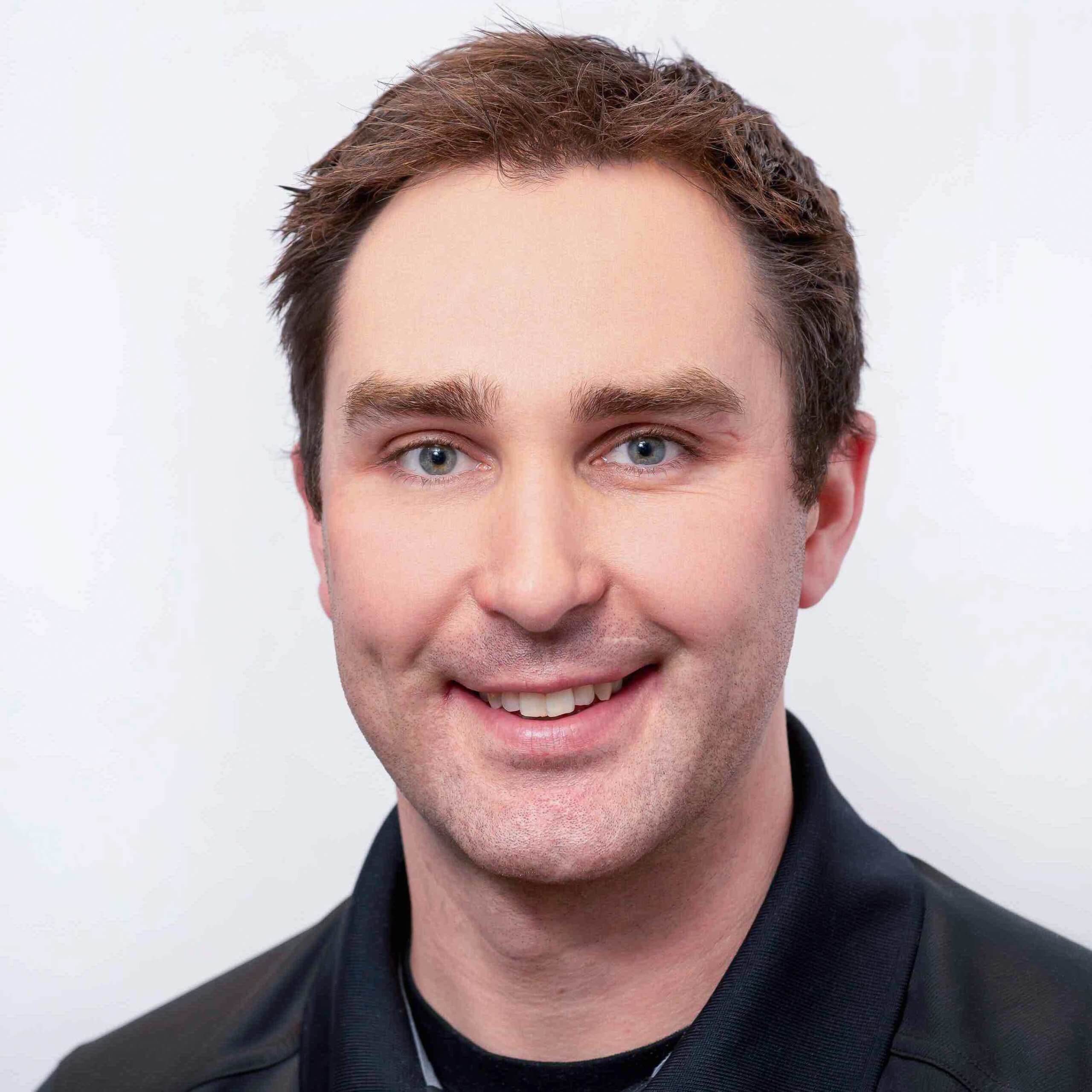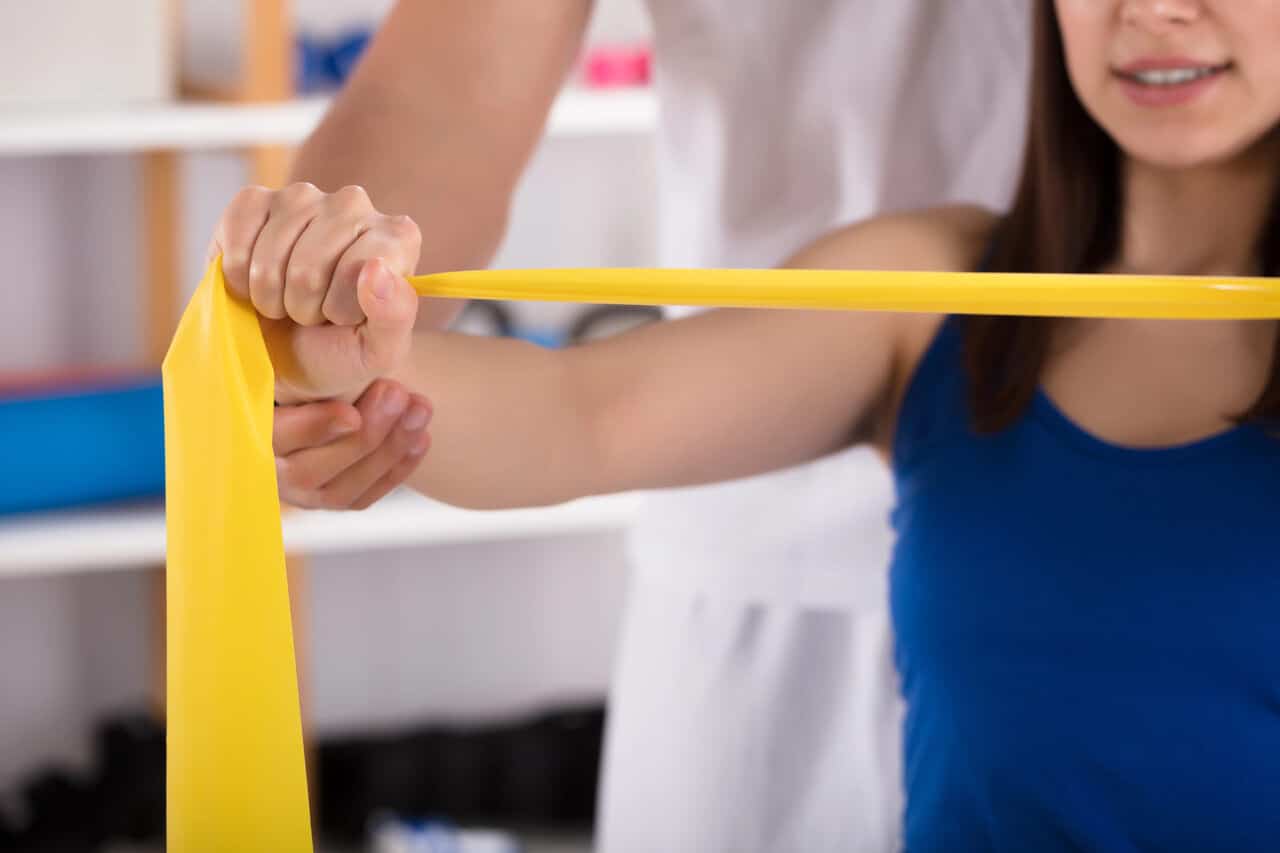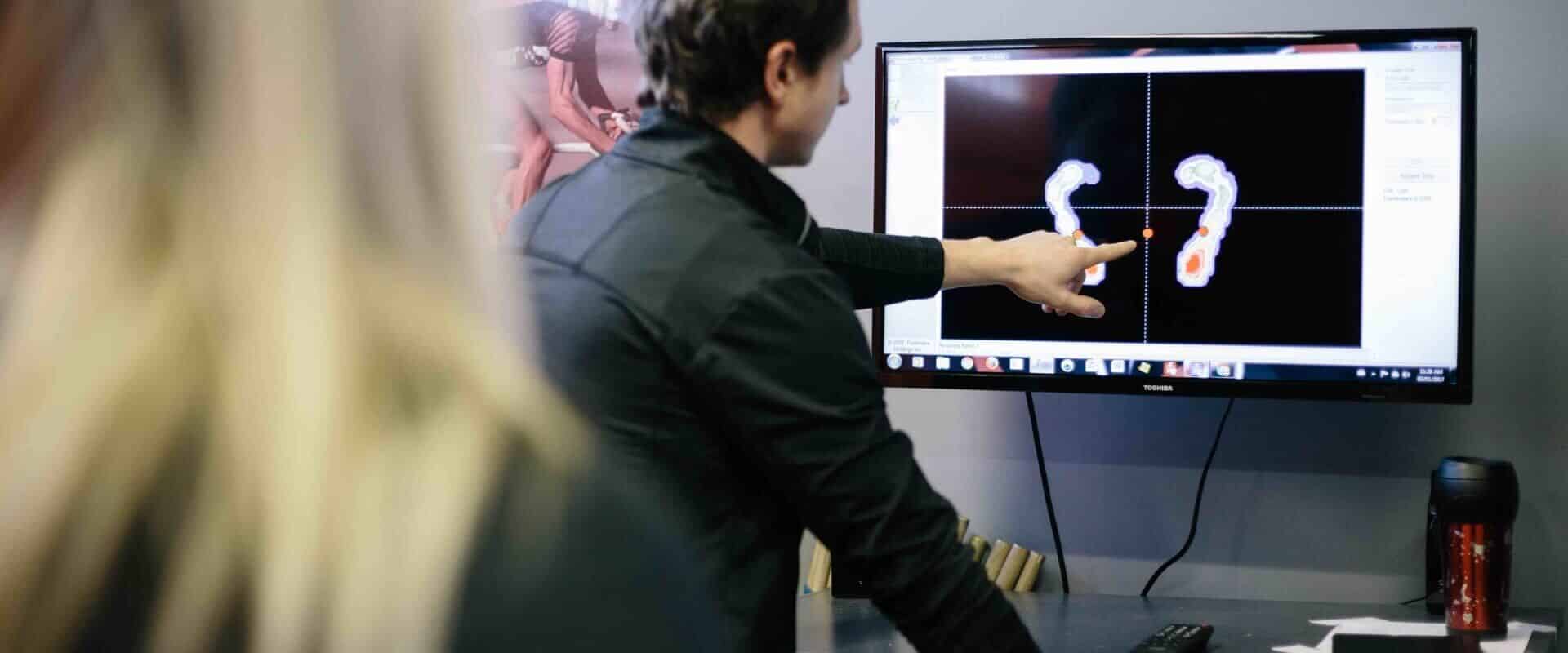Get Back in the Game!
Expert Care Tailored to You
Innovative Services & Techniques
Be Part of a Success Story
Concussions impact individuals at all stages of life and sport.
Craven SPORT Services is proud to provide expert concussion treatment in Saskatoon – addressing all stages of concussion diagnosis, concussion management, and concussion rehabilitation.
We are proud to offer the very best in research-backed concussion treatment and rehabilitation.
What is concussion management?
What exactly do we do when it comes to concussions? Lee Stevens, one of our Partners and Physiotherapists, explains it!
Our concussion management program includes:
Craven SPORT Services is proud to help prevent and treat concussions, before and after an injury occurs. Our concussion management services include:
- Comprehensive concussion baseline testing
- Post-injury concussion diagnosis and injury management
- Concussion rehabilitation for chronic symptoms (post-concussion syndrome)
- Coach and trainer education and certification programs
What is a concussion?
Ever wonder what happens to your brain when you get a concussion? Lee Stevens, one of our Partners and Physiotherapists, walks us through the process.
What is a concussion?
A concussion is a brain injury caused by a disruption in neurological functioning following a significant impact to the head or elsewhere in the body. This impact causes a biomechanical imbalance within the brain cells, resulting in decreased blood flow and temporary energy deficits within the brain. Studies have shown that any activity, whether mental or physical, in the immediate days following a concussion can delay the process of recovery and should be avoided in the early stages of recovery.
What are the symptoms of a concussion?
Concussion symptoms are varied, but may include:
- Initial loss of consciousness
- Headache
- Pressure in the head or neck
- Pain
- Nausea or vomiting
- Dizziness
- Balance problems
- A wide range of additional side-effects
While the above symptoms are considered ‘normal’ side effects of a concussion, the following RED FLAGS should prompt an immediate trip to the Emergency Room:
- Seizures or convulsions
- Declining level of consciousness or awareness
- Weakness or numbness in arms or legs
- Inability to wake up
- Severe or worsening headache
- Extreme nausea or repeated vomiting
- Increasing confusion
- Unsteadiness standing or walking
- Bruising around eyes or ears
- Odd behaviour
- Slurred speech
- Inability to remember the injury or new events
From injury to recovery: what you need to know
You suspect that you, your child, or an athlete you coach has had a concussion… now what?
A concussion is a serious injury that requires proper attention and care to ensure full recovery. Failure to act appropriately in the event of a concussion can lead to re-injury, complications, and/or long-term damage.
I. BOOK AN APPOINTMENT
If you (or your child) has had an acute or recent concussion, contact us as soon as possible following the injury to set up your first appointment. Early assessment and intervention allows your physiotherapist to put a proper plan in place, helping to optimize the time frame for recovery and reduce complications during the recovery process.
Due to the potential severity of concussions, our administrative team will work hard to ensure an appointment time is made available to you as soon as possible.
–
Please note: If you experienced a concussion in the past but recovery hasn’t gone as expected, or you’ve been dealing with lingering symptoms, it’s not too late. Concussion injuries can have an effect on different systems in your body, which can be the cause of certain ongoing symptoms. An appointment with a Craven SPORT Services physiotherapist will allow you to build a plan to identify, address, and treat these issues with targeted rehabilitation strategies. If you’re experiencing ongoing or unresolved symptoms from past concussions, physiotherapy may help!
II. BEFORE YOUR APPOINTMENT
While you wait for your appointment with a Craven SPORT Services physiotherapist, please abide by these guidelines of the Do’s & Don’ts following a concussion:
DO’s:
-
- Rest: Concussion results in a very low energy state in the brain. Avoid strenuous activity for the first 24 to 48 hours
- Sleep: If there are no ‘Red Flags’ (see above), then get a good night’s sleep. Take naps if needed.
- Eat right: Proper nutrition can give you energy and play a role in recovery.
- Follow protocols: Guided return to learn, work, and play protocols can help you make a full recovery. Follow the direction of any healthcare or in-game/on-field medical providers you consulted prior to booking your appointment with Craven SPORT services.
DONT’S:
-
- Play sports: Do not participate in sport before full recovery and clearance from your healthcare provider or physiotherapist. It is dangerous, and can put you at serious risk.
- Work or study: Take time off from school or work until you feel better.
- Drive: Do not drive for at least 24 hours. Resume driving only once you feel better.
- Take pain medication: Pain medication can ‘mask’ symptoms, and make it difficult to tell how a concussion is effecting you. Talk to your doctor or a Craven SPORT services physiotherapist first.
- Drink alcohol or take drugs: These can make you feel worse or ‘mask’ concussion symptoms.
PREPARATION FOR YOUR APPOINTMENT AT CRAVEN SPORT SERVICES:
- Please arrive 15 minutes early to complete any necessary paperwork before your appointment begins.
III. DURING YOUR APPOINTMENT
The following is what you can expect during your appointment with a Craven SPORT Services physiotherapist:
SUBJECTIVE HISTORY & DISCUSSION:
- When you attend your assessment, your physiotherapist will first have a discussion with you, which will include a detailed history of: when you sustained your concussion, how it happened, the symptoms you have been experiencing, how your condition has progressed or changed, and how it has been effecting your quality of life.
- Your physiotherapist will also gather information about your past medical history, including any previous concussions.
SCREENING QUESTIONS & TESTS:
- During the assessment, screening questions and tests are performed to rule out the presence of any ‘red flags’ that would indicate the possibility of other more serious neurological conditions.
EDUCATION:
- Your physiotherapist will educate you about the symptoms and management of your concussion, helping you better understand why you are feeling the way you are, and what you can expect moving forward.
DEVELOPMENT OF AN INDIVIDUALIZED PLAN:
- An individualized plan will be developed that will include appropriate guidance and progression through the return to learn, work, and play stages.
- School and workplace modifications are laid out as needed for success in these areas.
- Targeted rehabilitation strategies will be developed for any concurrent neck/whiplash injuries, as well as any visual or vestibular dysfunction you are experiencing.
- Physical exertion clearance tests are performed at various points during recovery to better inform this process.
What is Baseline Testing?
Lee Stevens is here to talk about Baseline Testing! What is it? And why is it so important? Find out now!
Why baseline test?
The biggest concern surrounding concussions comes from the energy deficit that occurs in the brain following an injury. When the brain is in this low energy state, it has been well established that the brain is extremely vulnerable to additional trauma, where even smaller impacts can lead to another concussion. These second concussions can cause severe brain injuries with potentially permanent or fatal outcomes.
The problem is that symptoms (how a client feels post-concussion) rarely coincide with actual brain recovery. The only way to know when the brain has fully recovered and is out of this “vulnerable period” is to compare current brain function to when the individual was healthy; this is what is known as a “baseline test”.
What is involved in baseline testing?
A baseline test is a series of tests that measure every area of brain function that could potentially become affected following a concussion. The reason that the test is termed a “baseline” is because it is done before the individual becomes injured. In order to know when a client has fully recovered, our physiotherapists first have to know where they were when they were healthy. Without having this information, there is no way to truly know when an athlete has fully recovered and is safe to return to their sport.
Baseline testing involves a wide-variety of tests, that can include:
- Balance testing
- Reaction time
- Coordination
- Stability
- Physical exertion
- & more!
Concussion Tracker Smart-Phone Application
Athletes and concussed patients can now log in to view their baseline test results as well as receive rehabilitation exercises, diet plans, and other recovery tips to help them along the way. The app also allows the injured patient (or their parents) to have around-the-clock communication with the treating clinician as well as to provide an update on their symptoms and progress every single day…all from your phone!
To learn more about Complete Concussion Management, click here.
For more information about the Craven SPORT Services concussion management program, contact us at 306 934 2011!
Meet Saskatoon's Premier Physiotherapy Team

Bruce Craven
Bruce is an internationally recognized Sport Physiotherapist and Strength and Conditioning Coach, with over 31 years of experience working with athletes in over 40 different

Michelle Keene
Michelle graduated from the University of Saskatchewan in 2014 with a Masters in Physical Therapy. She received the Craven SPORT services Sport Physiotherapy Award upon

Lee Stevens
Lee is a graduate of the University of Saskatchewan, where he completed a Bachelors of Science in Kinesiology (2009) before moving on to the Masters
Insurance Partners
Areas We Serve
- Saskatoon
- City Park
- North Park
- River Heights
- Broadway
- Stonebridge
- Kensington
- Montgomery
- Downtown
- Nutana
- Sutherland
- Mayfair
- Riversdale
- University Heights
- Evergreen
- Rosewood
- Lawson Heights
- Caswell Hill
- Greystone Heights
- Lakeridge
- Silverspring
- Aspen Ridge
- Willowgrove
- And More!
Explore Our Health & Wellness Blog Posts

Neck Pain Solutions: How Physiotherapy Can Improve Your Condition
Dealing with neck pain can be a debilitating experience, affecting your daily activities and overall quality of life. This blog post explores the role of

Optimizing the Timing of Physiotherapy Exercises for Enhanced Recovery
When starting a physiotherapy regimen, the timing of your exercises can play a pivotal role in determining the effectiveness of your recovery and overall physical

Are You Experiencing Stress-Related Headaches? PT Can Help!
Dealing with headaches on a daily basis can be extremely isolating and exhausting. Did you know headaches are the third most common type of pain?

Nutritional Changes Can Help You Get Rid of Pain and Inflammation
If you already see a physiotherapist for internal inflammation, you are aware that this is a serious issue that can have a negative impact on

Don’t Ignore Your Back Pain; Seek Physiotherapy Assistance
The majority of people will suffer from back pain at some point in their lives. This is not to say that you should accept your

Physiotherapy Could Help You Avoid Surgery Altogether!
Are you frustrated by your recurring pain? Do you feel as if you’re out of options and are now contemplating surgery? At Craven Sport Services
Concussion Clinic Saskatoon FAQs
CRAVEN SPORT SERVICES MAIN CLINIC
701 2nd Ave N #3, Saskatoon, SK S7K 2C9, Canada
PH: 306-934-2011
FAX: 306-934-2012
EMAIL: CSS@CRAVENSPORTSERVICES.CA
CRAVEN SPORT SERVICES TRAINING CENTRE
632 1st Ave N #10, Saskatoon, SK S7K 1X8, Canada
PH: 306-986-3548
EMAIL: TRAIN@CRAVENSPORTSERVICES.CA
HOURS OF OPERATION:
Mondays: 7:00am – 7:00pm
Tuesdays: 7:00am – 7:00pm
Wednesdays: 7:00am – 7:00pm
Thursdays: 7:00am – 7:00pm
Fridays: 7:00am – 6:00pm
Saturdays: 9:00 – 4:00pm (Training Centre only)

